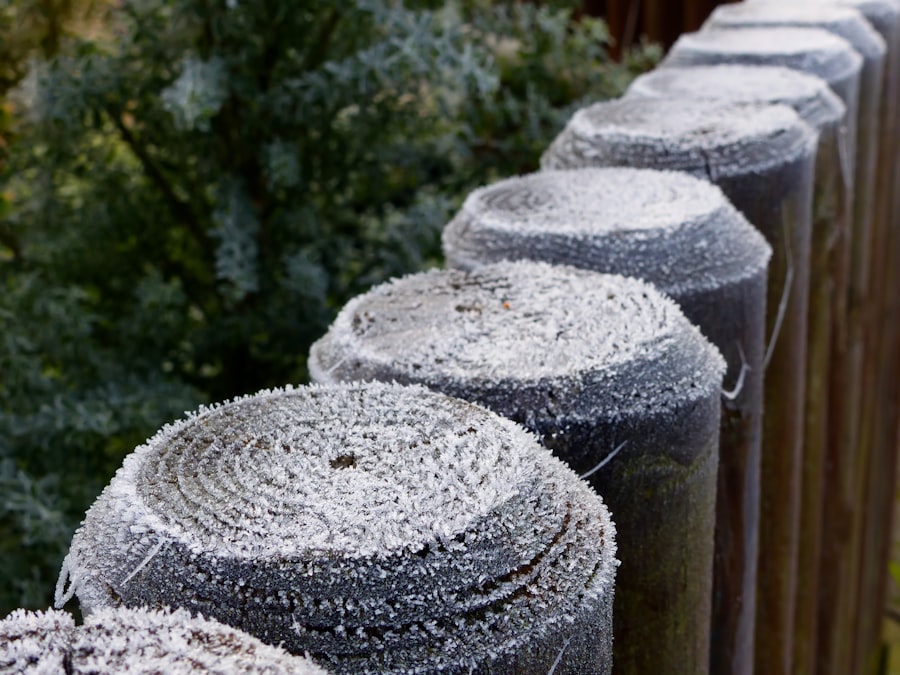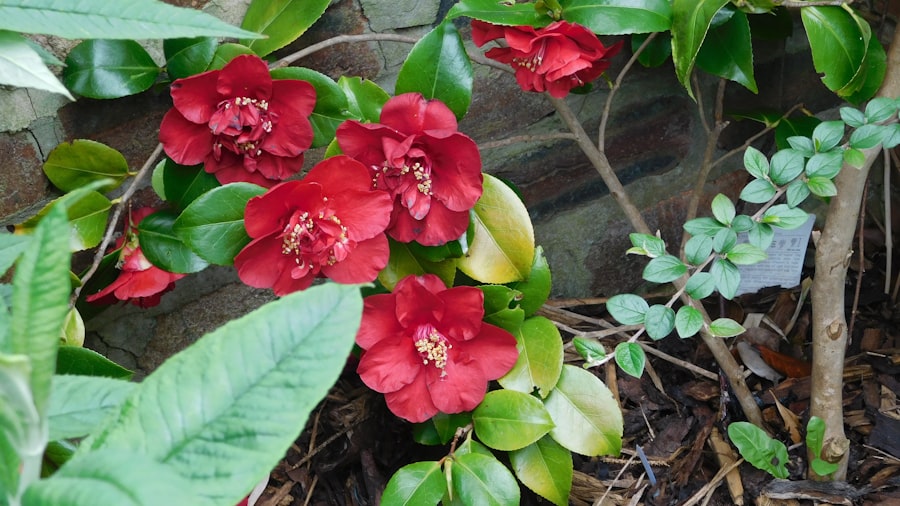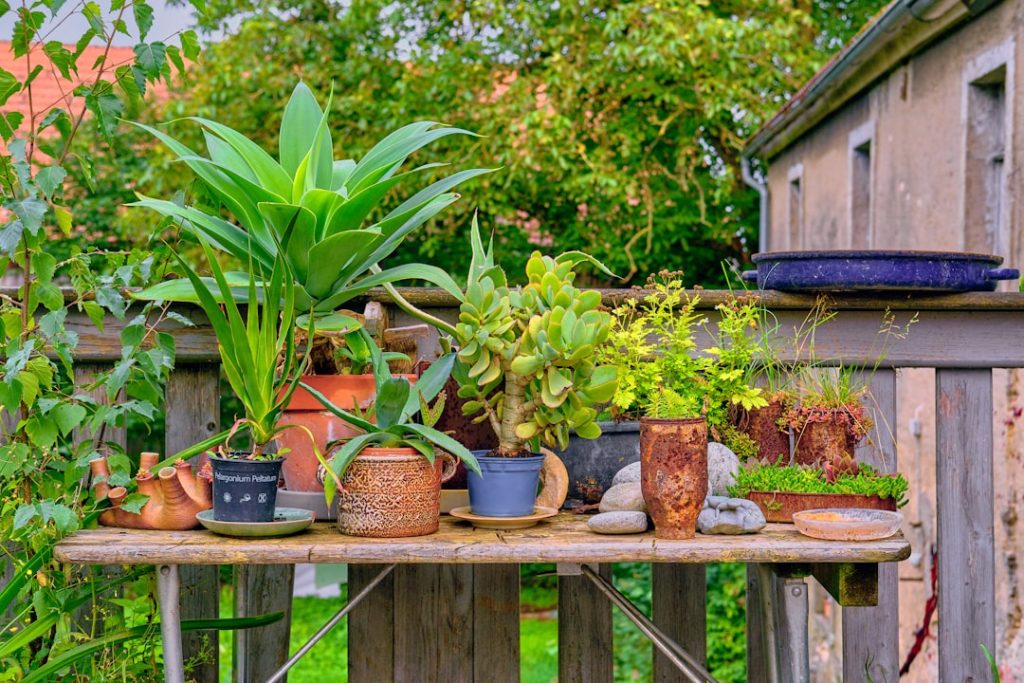Chickens exhibit natural curiosity and social behavior, with a strong instinct for foraging. They are easily startled by sudden movements and loud noises. Understanding these characteristics is essential for effective deterrence.
Chickens are attracted to areas with abundant food sources, and their easily frightened nature can be leveraged to keep them away from specific locations. Chickens are creatures of habit and will repeatedly return to areas where they have previously found food. Once they identify a location as a food source, they will continue to visit it.
This behavior necessitates proactive measures to prevent initial access to these areas. By comprehending chicken behavior, one can implement deterrent strategies that align with their natural instincts and tendencies.
Table of Contents
- 1 Creating Physical Barriers
- 2 Using Natural Deterrents
- 3 Implementing Visual Deterrents
- 4 Providing Alternative Areas for Foraging
- 5 Regular Maintenance and Monitoring
- 6 Seeking Professional Help
- 7 FAQs
- 7.1 What are some effective ways to keep chickens out of your flowers?
- 7.2 Why is it important to keep chickens out of your flowers?
- 7.3 Are there any plants that can help repel chickens from flower beds?
- 7.4 What are some common mistakes to avoid when trying to keep chickens out of your flowers?
- 7.5 How can I train my chickens to stay out of my flower beds?
Key Takeaways
- Chickens are naturally curious and will explore their surroundings, so understanding their behavior is key to deterring them from unwanted areas.
- Physical barriers such as fences and netting can effectively keep chickens out of specific areas, preventing damage to gardens or other sensitive areas.
- Natural deterrents like citrus peels, garlic, or hot pepper can be used to discourage chickens from foraging in certain areas.
- Visual deterrents such as scarecrows or reflective objects can startle chickens and discourage them from entering restricted areas.
- Providing alternative areas for foraging, such as designated chicken-friendly zones with food and scratching areas, can redirect their attention away from sensitive areas.
- Regular maintenance and monitoring of barriers and deterrents is essential to ensure their effectiveness in keeping chickens away from unwanted areas.
- Seeking professional help from a veterinarian or animal behaviorist may be necessary for persistent chicken behavior issues that cannot be resolved with DIY methods.
Creating Physical Barriers
Installing Fences and Structures
One effective way to deter chickens from accessing certain areas is by creating physical barriers. This can include installing fences, netting, or other structures that prevent chickens from entering specific locations. Fences should be tall enough to prevent chickens from flying over them and sturdy enough to withstand pecking and scratching.
Using Netting to Cover Plants
Netting can be used to cover plants or other areas that chickens may be attracted to. By creating physical barriers, you can effectively block off access to areas that you want to protect from chicken foraging.
Alternative Materials for Barriers
In addition to fences and netting, you can also use chicken wire or hardware cloth to create barriers around specific plants or garden beds. These materials are durable and can be easily shaped to fit the contours of the area you want to protect.
By creating physical barriers, you can effectively deter chickens from accessing certain locations and protect your plants and other valuable items from their foraging behavior.
Using Natural Deterrents

Another approach to deterring chickens from specific areas is by using natural deterrents. This can include planting certain types of vegetation that chickens find unappealing or using natural scents that repel them. For example, planting strong-smelling herbs such as lavender, mint, or rosemary around the perimeter of a garden can help deter chickens from entering the area.
Additionally, using natural scents such as citrus or garlic can also help keep chickens away from specific locations. Another natural deterrent is the use of predator decoys or predator urine. Placing decoys of natural predators such as owls or hawks in the area can help deter chickens, as they will perceive the area as unsafe.
Similarly, using predator urine, which can be purchased at garden supply stores, can create the illusion of a predator presence and deter chickens from foraging in specific locations. By using natural deterrents, you can effectively discourage chickens from accessing certain areas without causing them harm.
Implementing Visual Deterrents
In addition to natural deterrents, visual deterrents can also be effective in deterring chickens from specific areas. This can include using reflective surfaces such as mirrors or shiny objects to create visual disturbances that deter chickens. For example, hanging CDs or aluminum foil strips in the area can create flashes of light that startle and deter chickens from foraging in the area.
Another visual deterrent is the use of scarecrows or other motion-activated devices that startle chickens when they approach. These devices can be effective in deterring chickens from specific areas by creating a sense of danger and unpredictability. By implementing visual deterrents, you can effectively discourage chickens from accessing certain locations without causing them harm.
Providing Alternative Areas for Foraging
One way to deter chickens from specific areas is by providing alternative areas for foraging. By creating designated foraging areas with abundant food sources, you can redirect chickens away from locations where you do not want them to forage. This can include setting up feeding stations with grains or other chicken-friendly foods in areas away from your garden or other sensitive locations.
Additionally, you can also create designated foraging areas by scattering scratch grains or other treats in specific locations where you want the chickens to forage. By providing alternative areas for foraging, you can effectively redirect the chickens’ natural instinct to search for food and prevent them from accessing sensitive areas.
Regular Maintenance and Monitoring

Inspecting Physical Barriers
This involves regularly inspecting fences, netting, or other physical barriers to ensure they are intact and functioning properly.
Monitoring Deterrent Effectiveness
It is also important to monitor the effectiveness of natural and visual deterrents and make adjustments as needed.
Identifying Weaknesses and Taking Action
Regularly checking for signs of chicken activity in sensitive areas can help identify any potential weaknesses in your deterrent strategies. By staying vigilant and addressing any issues promptly, you can effectively deter chickens from accessing specific locations and protect your plants and other valuable items from their foraging behavior.
Seeking Professional Help
If you are struggling to deter chickens from specific areas despite implementing various strategies, it may be beneficial to seek professional help. This can include consulting with a poultry expert or hiring a professional pest control service that specializes in deterring chickens. These professionals can provide valuable insights and expertise in developing effective deterrent strategies tailored to your specific situation.
Additionally, professional help can also involve identifying any underlying issues that may be attracting chickens to certain areas and addressing them accordingly. By seeking professional help, you can gain access to specialized knowledge and resources that can help effectively deter chickens from accessing specific locations on your property.
If you’re looking for more tips on keeping chickens, you might be interested in this article on creating a chicken coop country diner. It offers advice on how to design a feeding area for your chickens that will keep them happy and well-fed, while also minimizing mess and waste.
FAQs
What are some effective ways to keep chickens out of your flowers?
Some effective ways to keep chickens out of your flowers include using physical barriers such as fences or chicken wire, using natural deterrents like citrus peels or coffee grounds, and providing alternative areas for the chickens to forage.
Why is it important to keep chickens out of your flowers?
It is important to keep chickens out of your flowers to protect the plants from being trampled, scratched, or eaten by the chickens. Additionally, some plants may be toxic to chickens, so it is important to prevent them from accessing these plants.
Are there any plants that can help repel chickens from flower beds?
Yes, there are some plants that can help repel chickens from flower beds, such as marigolds, lavender, and rosemary. These plants have strong scents that chickens may find unpleasant, deterring them from entering the flower beds.
What are some common mistakes to avoid when trying to keep chickens out of your flowers?
Some common mistakes to avoid when trying to keep chickens out of your flowers include using harmful chemicals or pesticides that may be toxic to the chickens, neglecting to provide alternative foraging areas for the chickens, and using flimsy or ineffective barriers that the chickens can easily bypass.
How can I train my chickens to stay out of my flower beds?
You can train your chickens to stay out of your flower beds by using positive reinforcement, such as providing treats and praise when they stay away from the flower beds, and using negative reinforcement, such as gently shooing them away when they approach the flower beds. Consistency and patience are key when training chickens.
Meet Walter, the feathered-friend fanatic of Florida! Nestled in the sunshine state, Walter struts through life with his feathered companions, clucking his way to happiness. With a coop that’s fancier than a five-star hotel, he’s the Don Juan of the chicken world. When he’s not teaching his hens to do the cha-cha, you’ll find him in a heated debate with his prized rooster, Sir Clucks-a-Lot. Walter’s poultry passion is no yolk; he’s the sunny-side-up guy you never knew you needed in your flock of friends!







